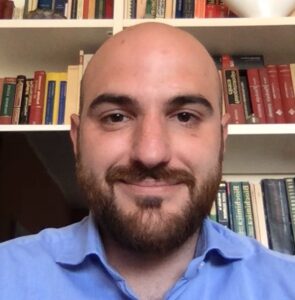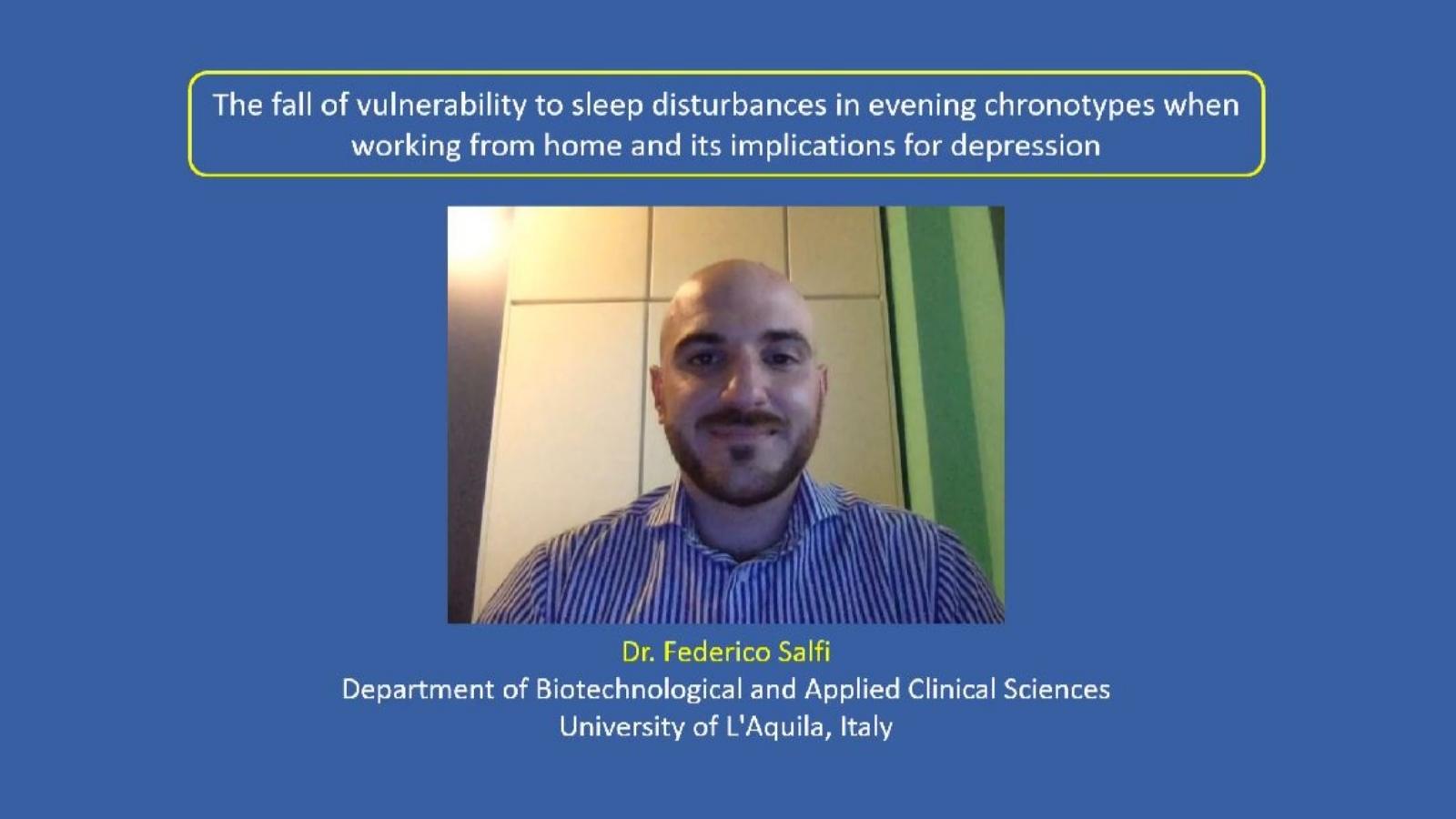The Benefits of Working from Home on Night Owl’s Sleep

Dr. Federico Salfi
Laboratory of Sleep Psychophysiology and Cognitive Neuroscience, University of L’Aquila, Italy
How does working from home affect sleep of different chronotypes?
Dr. Federico Salfi from the Laboratory of Sleep Psychophysiology and Cognitive Neuroscience, University of L’Aquila (Italy), provides some insight on the benefits of remote working on night owls’ sleep.
The COVID-19 outbreak radically changed the labour market. A large-scale transition to remote work involved millions of people worldwide. Working from home is associated with greater flexibility of working hours, allowing a better organization of daily activities. Some studies reported a positive effect of remote working on sleep quality/duration. However, the benefits of remote working may not involve all workers in the same way, preferentially affecting the so-called night owls.
Evening-chronotype people are individuals with a biological predisposition to sleep and wake up later, representing 10–20% of the general population. In our society, typically oriented to the morning, the night owls are characterized by reduced sleep duration during working days and sleep problems due to the misalignment between the circadian and working-social clocks (the social jetlag). This situation also leads evening-type people to experience mood disorders such as depression.
The widespread transition to remote working gives rise to an unprecedented open-air experiment to understand how sleep changes when work hours and work environments change, with a special focus on night owls’ sleep.
In their study, Salfi and collaborators addressed this timely research question, showing specific effects of working from home according to individual circadian preferences.
The study demonstrated that evening-type people did not show their characteristic tendency to short sleep duration, lower sleep quality, and more severe insomnia when working from home. Moreover, the benefits on sleep had implications for night owls’ mental health, as remote work abolished their sleep-driven predisposition to depression.
A working environment complying with individual chronotype can guarantee all workers equal opportunities for sleep, promoting both sleep health and psychological well-being.
Watch his presentation below for further insights on the methodology used, greater details on their findings, and some consideration of the author.
ESRS Reminders
ESRS 50th Anniversary JSR Special Issue Webinar
Registration is now open for the upcoming ESRS 50th Anniversary JSR Special Issue Webinar on 5 September 2022. This will be hosted by JSR Editor-in-Chief Dieter Riemann at 15:00 CEST. He’ll be joined by Alexander Borbély (2-Process Model), Kerstin Hödelmoser (Memory Consolidation) and Dirk Pevernangie (OSAS).
More details here.
Sleep Europe 2022 Late Breaking Abstract Submission
This is your last chance to submit late breaking abstracts on clinical or basic topics. These abstracts should contain data or relevant information that was not yet known or available by the normal submission deadline (26 April 2022) for it to be accepted.
Deadline: 16 August 2022
More details here.
Call for Photos – ESRS 50th Anniversary
Deadline: 26 August 2022
More details here.
Sleep Europe 2022 Regular Registration
The ESRS Board is pleased to announce that regular registration is now open for Sleep Europe 2022 in September in Athens, Greece. We look forward to seeing you there in-person for an exciting programme including new teaching courses, more keynote speakers than ever before and numerous sessions based on our six educational tracks.
Deadline (Regular Registration): 30 August 2022
View the entire scientific programme and register today.
Become More Active in the ESRS
The Sleep Medicine Committee is seeking an effective member to fill the position of Chair for the committee. This is one of our largest and most productive committee’s, with four working groups dedicated to promoting clinical sleep medicine as its own healthcare discipline.
Deadline: 15 August 2022
More details here.
The ESRS Board invites you to submit nominations for members of the 2022 – 20224 ESRS Board and Scientific Committee. This is an excellent way in which you can get more involved in the society and contribute in an even greater way to the sleep science field.
Deadline: 14 September 2022
More details here.
Recent publications from ESRS members
- Gigliotti et al. (2022). Sleep terrors – A parental nightmare. Pediatr Pulmonol.
- Palagini et al. (2022). Sleep, insomnia and mental health. J Sleep Res.
- Arnardottir et al. (2022). The Sleep Revolution project: the concept and objectives. J Sleep Res.
- Nobili et al. (2022). Sleep and epilepsy: A snapshot of knowledge and future research lines. J Sleep Res.
- van de Langenberg, Kocevska & Luik. (2022). The multidimensionality of sleep in population-based samples: a narrative review. J Sleep Res.
- Pizza et al. (2022). The orexin story, sleep and sleep disturbances. J Sleep Res.
- Borbély (2022). The two-process model of sleep regulation: Beginnings and outlook. J Sleep Res.
- Reichert, Deboer & Landolt. (2022). Adenosine, caffeine, and sleep-wake regulation: state of the science and perspectives. J Sleep Res.
- Idir, Oudiette & Arnulf. (2022). Sleepwalking, sleep terrors, sexsomnia and other disorders of arousal: the old and the new. J Sleep Res.
- McNicholas & Pevernagie. (2022). Obstructive sleep apnea: transition from pathophysiology to an integrative disease model. J Sleep Res.




